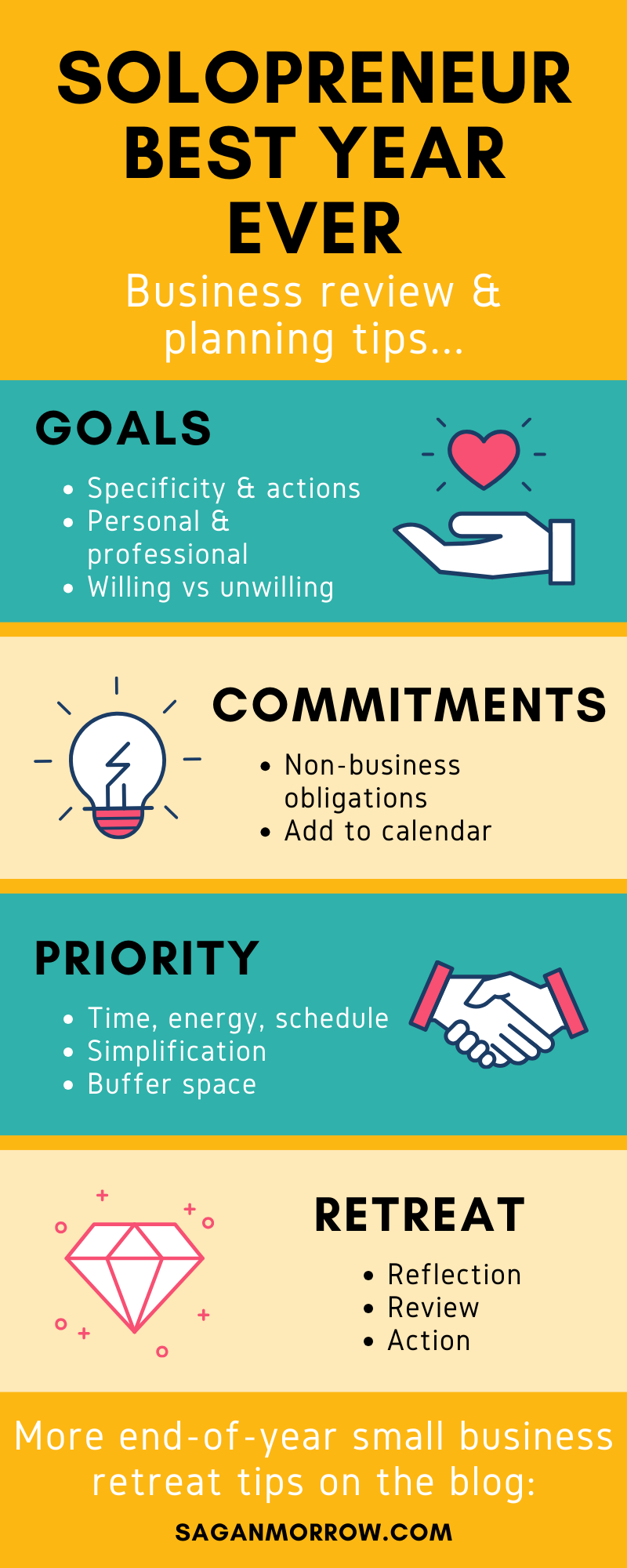How to have your best year ever in business as a freelancer or solo entrepreneur — you need to plan and prepare the RIGHT way! There are 3 core components for doing an annual business review and planning session…
Let's dive into these PLUS the top 3 questions you need to ask yourself for how to plan for the upcoming year with your business:
Watch all the videos in the Solo Entrepreneur Business Retreat series:
- How To Do an End-of-Year Business Review
- How To Have Your Best Year Ever in Business (that's this one!)
- Business Retreat Tips for Solopreneurs
How to Have your Best Year EVER in Business...
3 core components for doing an annual business review and planning session:
1) REFLECTION: Looking back on the past enables you to recognize your patterns (positive and negative)... and you need to know where you're starting from in order to move forward in the best ways possible.
2) REVIEW: Assessing the past year (in terms of analyzing the data, pinpointing what did/didn't work and why, doing performance reviews and checking over business plans, etc) gives concrete information about what to prioritize moving ahead.
In my previous video, you learned the top 7 questions you need to ask yourself for business planning reflection and review — so be sure to watch that video to get those key questions!
3) GOAL-SETTING & ACTION-ORIENTED PLANNING: Focusing on your longer-term goals helps you to know what to work on, when, and how in order to achieve them (and maintain perspective).
If you’re wondering what this can look like in action, and if you want very specific step by step processes, checklists, templates, sample schedules, and guided questions to do all of this, then I recommend you check out the Business Planning Retreat Intensive for all of your solopreneur business review and planning needs:
Here’s what to take into consideration when you’re doing goal-setting and action-oriented planning — the top 3 questions you need to ask yourself for how to plan for the upcoming 12 months with your business… 
- What specific goals do I want to work toward in the new year? What actions can I take to make progress on those goals?
- Connect back to your personal life goals AND your values.
- What am I willing and NOT willing to do with those specific actions?
- What non-business things (e.g. 9 to 5 job, family plans, other obligations & commitments etc) do I already know will be happening in the new year?
- Block this off in your calendar so you can be very realistic about setting business goals for the upcoming year.
- Based on my upcoming availability, and based on the goals I’ve set for myself in the new year, what is the order of priority for different actions and tasks?
- Identify specific time allotments, energy allotments, and when things will happen: map everything out into your calendar, e.g. by the quarter or by the month, to determine what you want it to look like.
- Have you over- or under-estimated your time/energy? What will serve you best? Or, could something be simplified so you can still fit it into the next year, without it being tied to a lot of stress or pressure?
- Don't forget to include some buffer space so you don't overload yourself!
What's next...
By this point, you should now have specific goals, a strategic action plan for HOW you’ll achieve those goals, a calendar or schedule for when you will do each task, AND buffer time in case you need a little extra space here and there.
All of this can feel like a lot, but it’s actually very cohesive and it saves you TONS of time in the long run.
Stay tuned for my next video — I’m going to share a little taste of some business retreat tips for you for implementing this!
